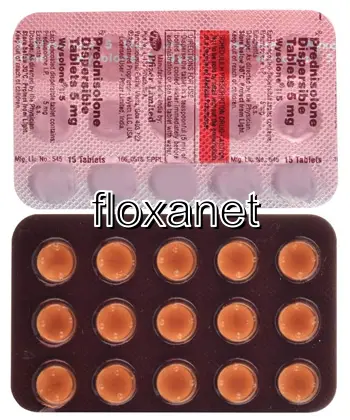| Package | Dosage | Price | Price per Dose | |
|---|---|---|---|---|
| Dosage: 2.5mg | ||||
| 180 pill | 2.5mg | CAD140.12 | CAD0.78 | |
| 120 pill | 2.5mg | CAD126.87 | CAD1.06 | |
| 90 pill | 2.5mg | CAD104.14 | CAD1.16 | |
| 60 pill | 2.5mg | CAD75.73 | CAD1.27 | |
| 30 pill | 2.5mg | CAD66.26 | CAD2.22 | |
| Dosage: 5mg | ||||
| 180 pill | 5mg | CAD145.80 | CAD0.81 | |
| 120 pill | 5mg | CAD121.19 | CAD1.00 | |
| 90 pill | 5mg | CAD104.14 | CAD1.16 | |
| 60 pill | 5mg | CAD77.63 | CAD1.29 | |
| 30 pill | 5mg | CAD64.37 | CAD2.14 | |
| Dosage: 10mg | ||||
| 180 pill | 10mg | CAD157.17 | CAD0.87 | |
| 120 pill | 10mg | CAD128.76 | CAD1.08 | |
| 90 pill | 10mg | CAD111.72 | CAD1.25 | |
| 60 pill | 10mg | CAD87.10 | CAD1.46 | |
| 30 pill | 10mg | CAD68.16 | CAD2.27 | |
| Dosage: 20mg | ||||
| 180 pill | 20mg | CAD160.96 | CAD0.89 | |
| 120 pill | 20mg | CAD134.44 | CAD1.12 | |
| 90 pill | 20mg | CAD117.40 | CAD1.31 | |
| 60 pill | 20mg | CAD92.78 | CAD1.55 | |
| 30 pill | 20mg | CAD71.95 | CAD2.41 | |
| Dosage: 40mg | ||||
| 180 pill | 40mg | CAD162.85 | CAD0.91 | |
| 120 pill | 40mg | CAD136.34 | CAD1.14 | |
| 90 pill | 40mg | CAD121.19 | CAD1.34 | |
| 60 pill | 40mg | CAD94.67 | CAD1.57 | |
| 30 pill | 40mg | CAD77.63 | CAD2.59 | |

Prednisolone Description
Introduction to Prednisolone
Prednisolone is a corticosteroid medication that is widely used to reduce inflammation and suppress the immune system. This medication is often prescribed for a variety of conditions, including allergic reactions, asthma, autoimmune diseases, and some skin disorders. Its effectiveness in managing acute and chronic inflammation has made it a common choice among healthcare providers. When taken as directed, prednisolone can significantly improve symptoms and quality of life for many patients.
Benefits and Uses
Prednisolone works by mimicking the effects of naturally occurring hormones produced by the adrenal glands. It helps to decrease swelling, redness, and allergic reactions. This makes it particularly useful in treating conditions such as rheumatoid arthritis, lupus, and inflammatory bowel disease. It is also effective in managing respiratory conditions like asthma and chronic obstructive pulmonary disease (COPD).
In dermatology, prednisolone is prescribed for severe skin conditions, including eczema and psoriasis, where inflammation is prominent. Its rapid action can provide quick relief from symptoms, which is crucial during flare-ups. Besides, in some cases, prednisolone is administered to prevent organ rejection after transplantation.
Administration and Dosage
The dosage of prednisolone depends on the specific medical condition, severity of symptoms, and individual patient response. It is usually taken orally in the form of tablets, but it can also be administered via injections or topical formulations in certain cases. Healthcare providers typically start with a higher dose to control symptoms and then gradually reduce it to minimize side effects.
It is important for patients to follow their healthcare provider’s instructions carefully. Sudden discontinuation of prednisolone can lead to adverse effects, so tapering the dose gradually is often recommended. Patients should inform their doctor about any other medications they are taking to avoid potential interactions.
Potential Side Effects and Risks
While prednisolone is highly effective, it can cause side effects, especially when used long-term or at high doses. Common side effects include increased appetite, weight gain, insomnia, mood changes, and gastrointestinal discomfort. Some individuals may experience elevated blood sugar levels or high blood pressure.
Long-term use can lead to more serious issues such as osteoporosis, cataracts, muscle weakness, and suppression of natural hormone production. That is why healthcare providers often monitor patients closely and attempt to use the lowest effective dose for the shortest possible duration.
Patients should report any unusual symptoms, such as persistent mood swings, visual disturbances, or signs of infection, as these may require medical attention. Proper management and regular check-ups help minimize risks associated with prednisolone therapy.
Precautions and Interactions
Before starting prednisolone, patients should disclose their full medical history, especially if they have infections, diabetes, hypertension, or osteoporosis. Since prednisolone suppresses the immune system, patients are more vulnerable to infections and should take precautions accordingly.
Several medications can interact with prednisolone, including certain vaccines, blood thinners, and drugs affecting blood sugar levels. Combining prednisolone with these medicines may require dose adjustments or additional monitoring.
Pregnant or breastfeeding women should consult their healthcare provider before using prednisolone, as it can pass into the bloodstream and may affect the fetus or infant.
Conclusion
Prednisolone remains an essential medication in the management of many inflammatory and autoimmune conditions. Its ability to provide rapid symptom relief has helped countless patients regain their normal activities and comfort. However, due to potential side effects and the need for careful monitoring, it should always be used under medical supervision. When used responsibly, prednisolone can be a powerful tool in improving health outcomes and managing complex medical conditions.
See Also
